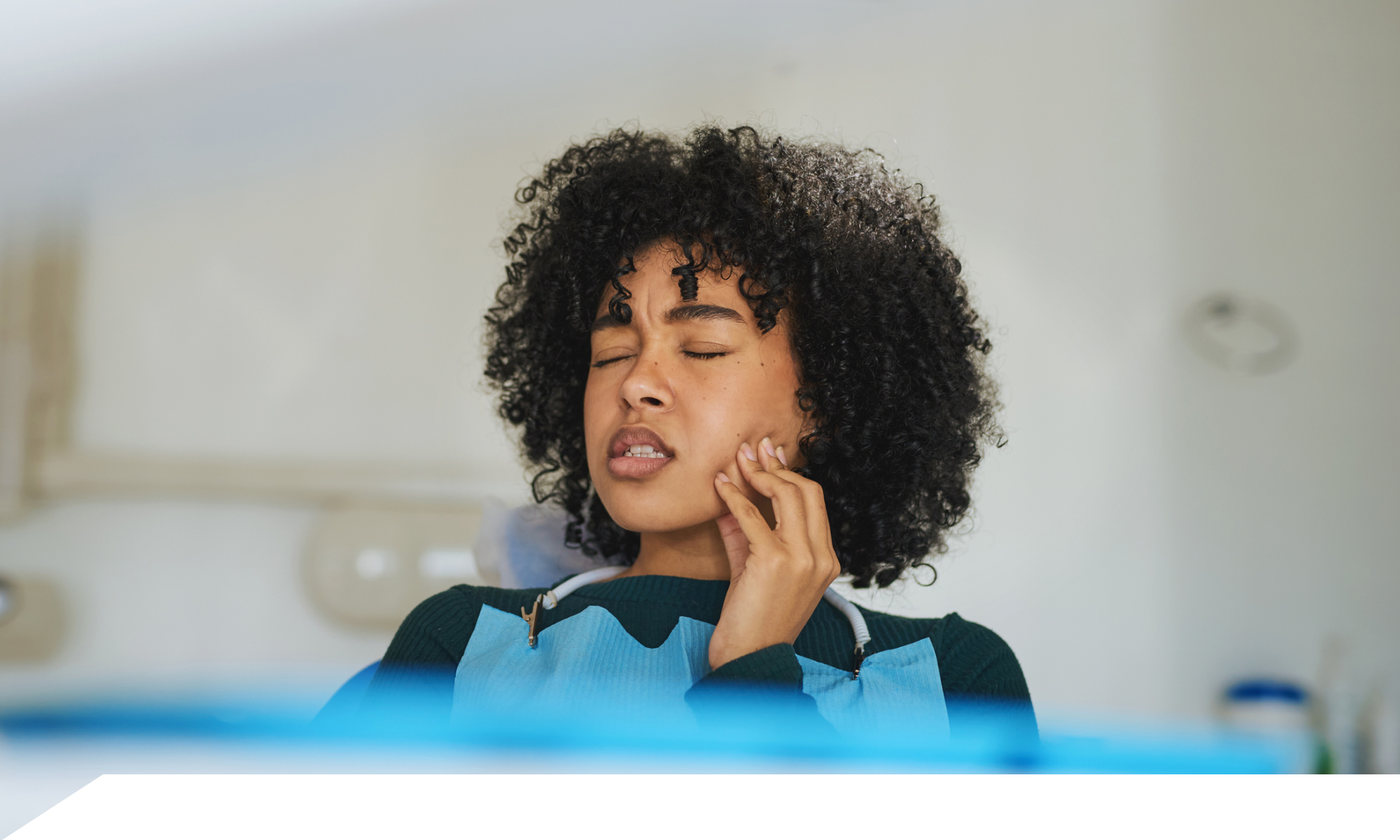Ever woken up with a mysteriously sore neck, jaw, or headache in the morning? It may be a sign of bruxism, aka grinding your teeth in your sleep. And you might be one of the 80% of teeth-grinders who don’t even know they’re doing it, according to Leena Palomo, DDS, a board-certified periodontist and chair of the Ashman Department of Periodontology & Implant Dentistry at NYU. She breaks down how to stop grinding your teeth at night and why it matters for your dental health.
Featured Expert:

Leena Palomo, DDS, MSD - Professor and chair at the Ashman Department of Periodontology and Implant Dentistry NYU
How do I stop grinding my teeth at night?
The first step? Make an appointment with your dentist, because you can’t stop the grind without knowing what’s behind it. And stopping bruxism depends on what’s causing it, says Palomo. You might grind your teeth because…
Something is sitting between your teeth (like a crown or filling). If that’s the cause your dentist may be able to fix it.
Your teeth have shifted. This can happen with age (especially if you stopped wearing your retainer years ago). If that’s the case, braces or Invisalign may be the fix, says Palomo.
You’re stressed. Which can contribute to jaw clenching at night, says Palomo. The solution: “Take all the stress out of your life,” says Palomo. More realistically, that might mean learning how to manage your stress. In the meantime, your dentist may recommend something temporary like a bite guard (which can help protect your dental work) and Botox or muscle relaxants to help relax the jaw muscle.
You have a sleep disorder such as sleep apnea. Some research shows that bruxism and sleep apnea are related, but more research is needed to determine if one causes the other.
The dentist’s office may not be your favorite place, but if ignored, bruxism can lead to soreness, jaw popping or clicking, pain, headaches, and even damaged teeth, she says.
theSkimm
You may be rising and grinding, but you don’t want your teeth to be. Thankfully, there are several solutions to bruxism that can help. And isn’t your smile (and sleep) worth it?
Ask an Expert is for informational purposes only, does not constitute medical advice, and is not a substitute for professional medical advice, diagnosis, or treatment. Always seek the advice of your physician, mental-health professional, or other qualified health provider with any questions you may have regarding a medical condition. By submitting a question, you are agreeing to let theSkimm use it—in part or in full—and we may edit its answer for length and/or clarity.
Live Smarter
Sign up for the Daily Skimm email newsletter. Delivered to your inbox every morning and prepares you for your day in minutes.






